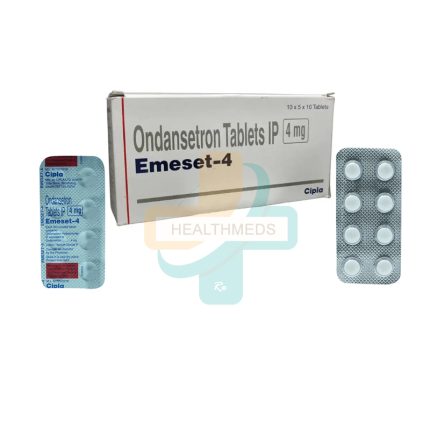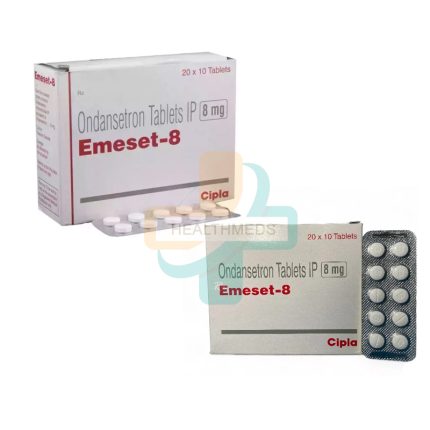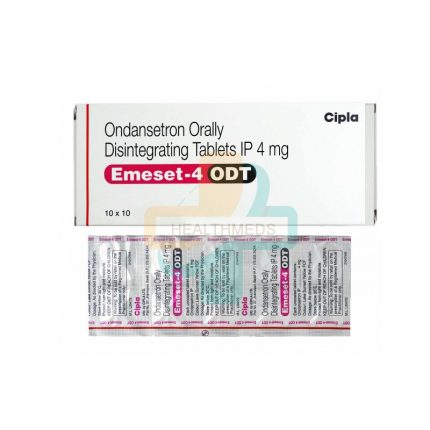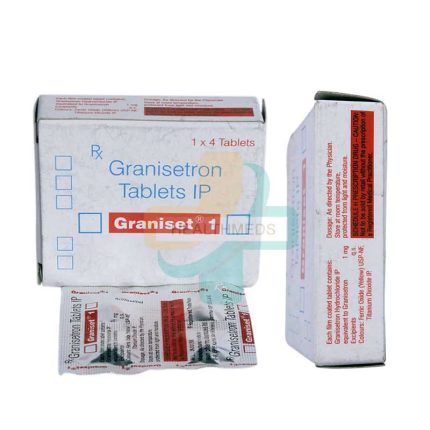Showing all 6 results
Antiemetics medical drugs designed to counteract nausea and vomiting are one of the safelist groups of medications. Such medicines are often prescribed by health experts either treat or prevent both sickness and vomiting.
These symptoms are usually caused by either chemotherapy, motion sickness or even during pregnancy or gastrointestinal diseases or other general conditions.
Thus, the emetic response which is suppressed at the CTZ or in the intestine through inhibiting gastric motility ensures that vomiting and nausea are prevented.
Common reasons to Vomiting
Stomach or intestines bacteria or viruses attack too may cause vomiting. People vomit after ingesting as a result of spoiled food and drinks that are infected with dangerous microorganisms or poisonous chemicals.
- Motion sickness: Sometimes nausea or vomiting may happen as the outcome of dysfunction of the tug-of-war type mechanism of the inner ear balance. Such mechanism may be due to side-to-side jolting or motion.
- Pregnancy: The most common symptom that causes nausea and vomiting during pregnancy is the morning sickness, which is only happened mostly within the first trimester, when woman’s body produces various hormones.
- Medication side effects: Part of the active absorption process, namely, when taking some medicines like opioids, chemotherapy, and antibiotics, a person can experience the sickening feeling of vomiting.
- Migraines: In some cases, individuals under the effect of hormonal imbalance might experience nausea and vomiting. Such reaction commonly occurs along with severe migraines. The obstruction of the gastric outflow can cause retching as a result of tumors, stenosis, or other anatomical disorders in the stomach or intestines.
- Gastroesophageal reflux disease (GERD): Acid reflux gets the chance to give damage that is left on the esophagus, in consequence, it ends to heal by vomiting.
- Binge drinking or overindulging in food: Fasting, overfilling and over drinking can all irritate the stomach resulting in either vomiting or indigestion.
- Emotional stress: Intensities of resources like fear, worry or sadness can invite the brain’s puking response, which makes a person wind up throwing up.
Bad effects of vomiting on health
- Dehydration: Repeated vomiting leads to electrolyte disorders, dehydration, and fluid loss, all of which may prevent from the correct functioning of human body.
- Deficits in nutrition: The fact is that the body can vomit out vitamins, minerals, and macro minerals, that cause deficiency state.
- Esophageal damage: Repeated vomiting can lead to esophageal lining irritation, inflammation and, other severe consequences including erosion or tears of the esophageal apparatus.
- Tooth erosion: Vomiting’s joint stomach acid that attack tooth enamel might lead to dental health problems such as decay, tooth sensitivity and discoloration.
- Esophageal strictures: Chronic vomiting for a long period or severe vomiting can lead to stricture, which means the narrowing and scarring of the esophagus that can cause discomfort and difficulties in swallowing.
- Metabolic disturbances: Excessive or persistent vomiting, which involve disrupted acid-base balance and electrolyte levels, may lead to metabolic disorders either in form of electrolyte imbalances or alkalosis.
- Weakness in the muscles: Through vomiting we can lose fluids. Electrolytes, and all nutrients needed in maintenance of good health and physical strength.
- Dental issues: Vomiting can produce such issues as gum disease, cavities, and wear of tooth enamel due to the acid.
- Psychological consequences: Those, who have eating disorders or other underlying mental health problems, are in the risk of developing psychological impacts including social isolation, depression, and anxiety because of the constant puking.
Different anti vomiting medicines and their working
From those antiepileptic capsules—Ondansetron, Granisetron, and Metoclopramide HCl—we can call 3 drugs that efficaciously treat or prevent pathological eczema.
In the treatment of acute irritation, each of those drugs contains a specific aspect that blocks specific herbal procedures. Let’s discover how each of these active ingredient’s paintings to deal with inflammation troubles:
Ondansetron: Heavyweight
Active aspect: ondansetron hydrochloride
Mechanism of motion: Ondansetron works by means of inhibiting the pastime of serotonin, the neurotransmitter that triggers inflammation within the brain. Specifically, ondansetron binds to serotonin receptors referred to as five-HT3 receptors located within the chemoreceptor trigger zone (CTZ) and gastrointestinal tract.
By antagonizing these receptors, ondansetron blocks the transmission of inflammatory and inflammatory indicators, as a result inhibiting infection and relieving signs of asthma.
Clinical uses: Ondansetron is typically used to save you and deal with nausea and inflammation resulting from medications, radiation remedy, and surgical procedure. It is likewise powerful in coping with nausea and vomiting associated with postoperative recuperation, gastrointestinal problems, and motion sickness.
Metoclopramide HCl
Active Ingredient: Metoclopramide hydrochloride
Mechanism of Action: Metoclopramide acts primarily by blocking dopamine receptors in the chemoreceptor trigger zone (CTZ) of the brain. Additionally, it enhances gastrointestinal motility by stimulating the release of acetylcholine and sensitizing the upper gastrointestinal tract to the effects of acetylcholine.
This dual mechanism of action accelerates gastric emptying and reduces the risk of vomiting.
Clinical Applications: Metoclopramide is used to prevent and treat nausea and vomiting associated with various conditions, including chemotherapy, surgery, gastroesophageal reflux disease (GERD), diabetic gastroparesis, and migraine headaches.
Granisetron
Active Ingredient: Granisetron
Mechanism of Action: Granisetron is a selective antagonist of serotonin 5-HT3 receptors located in the central nervous system and gastrointestinal tract. By blocking these receptors, granisetron inhibits the transmission of signals that trigger nausea and vomiting.
Additionally, it modulates the activity of the vagus nerve, which plays a role in the emetic reflex.
Clinical Applications: Granisetron is primarily used to prevent and manage chemotherapy-induced nausea and vomiting in cancer patients. It is also effective in preventing postoperative nausea and vomiting (PONV) following surgical procedures.
Ondansetron, Metoclopramide HCl, and Granisetron are potent antiemetic medications that work through different mechanisms to prevent and alleviate vomiting issues associated with various medical conditions.
These medications provide relief from nausea and vomiting, thereby improving patient comfort and quality of life during treatment or recovery.
Benefits of Using Anti-vomiting Medicines
- Control of Nausea and Vomiting: The group of drugs known as antiemetics work very well to both prevent nausea from occurring and to minimize the occurrence of vomiting in a variety of conditions. This way a person suffering from nausea or vomiting due to illness, treatment or certain circumstances can be helped to cope.
- Better Quality of Life: It is these drugs, that help to maintain general health and the quality of life of people having an oncology, morning sickness during pregnancy, or intestinal disease by reducing a nausea sickness.
- Preventing Dehydration: The loss of the electrolytes and dehydration causes a vomiting frequently. The anti-vomiting medications, these are very effective for those whose episodes of vomiting become severe and goes on for a long time, are crucial in the prevention of loss of fluids beyond normal level and maintaining the hydration levels.
- Increased Tolerance to Treatment: Antiemetic regimens tend to enhance a patient’s tolerance to cancer treatment as frequent vomiting and nausea might result in interruptions of some procedures or a medication dosage decrease, thus, compromising treatment effectiveness and outcomes. Among those taking radiation therapy or chemotherapy patients will mostly receive benefit from this.
- Management of Motion Sickness: Anti-vomiting medicines are known to be very effective in the treatment or relief of symptoms of motion sickness. These include nausea, vomiting, and dizziness. This is a good example for people they can travel more easily and utilize different transport with comfort. It does not bring any physical weakness.
- Facilitation of Surgical Recovery: In general anesthesia, antiemetic drugs may help patients feel more comfortable and have more uneventful recovery post-operation by suppressing PONV – a condition where patients feel nauseated and / or vomit.
- Relief from Gastrointestinal Disorders: Nausea, and the loss of the will to eat resulting from these diseases, is often associated with upset stomach diseases such gastritis, gastroenteritis, or for example irritable bowel syndrome (IBS). Some Antihistamines have been known to help with the sore throat problem and some of the other side effects that arise during the period of chemotherapy.
- Handling Pregnancy-Related Conditions Nausea: Antiemetic drugs are often prescribed to the women suffering from the common pregnancy symptom of morning sickness, a condition in which nausea and queasiness are experienced. This assists in managing these symptoms for the benefit of expecting mothers who can still consume a healthy diet.
Being anti-vomiting meds, they are used for the nausea and vomiting management in the broad spectrum of illnesses and situations. They bring relief, they increase the patient’s comfort during therapy, and they improve the general quality of life for those who see this effect.
Who can use anti vomiting medicines?
People with nausea and vomiting occurring for various reasons (unrelated ones) are often prescribed anti-vomiting medications. They could be suggested for usage or prescribed. They could be suggested for usage or prescribed by:
Acceptable Use:
This is especially true for those who vulnerable to motion sickness, Raynaud’s syndrome (nausea and vomiting), gastric infections, food poisoning, morning sickness during their pregnancy, or the condition that can be found due to cancer treatment which in such cases may cause nausea and vomiting.
For some patients with certain treatments such as chemotherapy or surgery that have symptoms of nausea and vomiting.
Mentally, it may even lead to disorders like gastroparesis, or gastroesophageal reflux disease (GERD), where intolerance to vomiting is a known symptom.
Persons suffering from chronic illnesses or conditions that give rise to continuous nausea or vomiting. Such ill health scenarios see patients suffer from functional dyspepsia or cyclic vomiting syndrome.
Restricted Use:
Then only kids who have attained the required age should be allowed to use the product because of the safety issues and dosage which may resist at different weights and age.
Additionally, the prescription for the anti-vomiting drugs may have to be monitored or adjusted to meet the needs of individuals with liver, or kidney impairment.
Taking anti-nausea drugs of any kind in the first trimester of pregnancy especially is not hostile and could be downright dangerous not only the fetus but also the mother. It’s best to consult with a health care provider first before taking these drugs during pregnancy.
Patients with allergic susceptibilities or those who are allergic to a particular anti-nausea medication because it might contain ingredients that produce allergenic reactions.
Patients which might be taking other medications that may result in vomiting after treatment and in such instances, decreased outcomes might be witnessed. Gene therapy is the treatment of disease by gene manipulation. The doctor can guide you to do gene therapy in the right way.
Care is necessary to be taken with anti-emetic agents in patients with specific neurological problems or psychiatric illnesses because they affect the mood and function of the central nervous system.
It is decided by healthcare professional to use or not anti-vomiting drugs. He has to impose any restrictions just on case-by-case condition. The decision is based on patient’s medical history, present condition and personal choice.
Common side effects of anti-vomiting medicines and ways to manage them include:
- Drowsiness or dizziness: While driving or operating heavy machinery isn’t advisable, you must wait until you know how the drug affects you before doing so. To deal with sleep problems during the daytime, take it at night.
- Headache: Eliminate your pain using pain medications available besides following your doctor’s instructions. After taking rest and drinking lots of water then you will recover from fever quickly.
- Constipation: When it comes to improve bowel regularity, drink more water, carry out a diet that is high in fiber as well as exercise regularly. An over-the-counter laxative might also be useful but using it according to instructions should always be kept in mind and caution is advised.
- Dry mouth: Drying the mouth is one of the causes of bad breath. To relieve this dryness, you can chew sugar-free gums, drink water all day long and when needed make use of mouthwash or replacements for saliva.
- If you are in the dilemma of nausea or vomiting when the time of taking the medicine is, have a small snack or meal and you will be fine. You may continue to have nausea despite this. If this is the case, then talk to your doctor about any other medical treatments they might recommend.
- Diarrhea: Fulfil your daily fluid requirements and try not to have diets that can worsen related symptoms like spicy or oily foods, coffee, and alcohol. Otc anti-diarrheal drugs would be effective if used properly but should not be used indifferently.
- Weakness or exhaustion: For inhibition of tiredness, get lots of sleep, eat a balanced diet and engage in physical activity. Consult your healthcare specialist, if necessary, in order to have a blood test to check whether you still have low levels of the red blood cells.
- Reactions to allergens: Developing those symptoms including eczema, hives, swelling, difficulty breathing or chest pain with a sensation of pressure call for medical help and emergency.
In case you suspect you could be having an allergic side effect you may consider ceasing the medicine use and report to your doctor.
Alongside this, it is vital to consult with your healthcare provider about any of the negative effects and their recommendation of alternative dosages or further diagnostic medical evaluation.
Before trying any drug, be sure to check with a doctor or pharmacist. While taking your medications, always follow your doctor’s instructions and never try to make any adjustments to your treatment plan without their advice.







